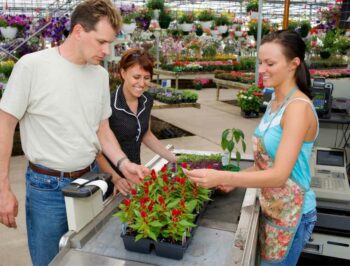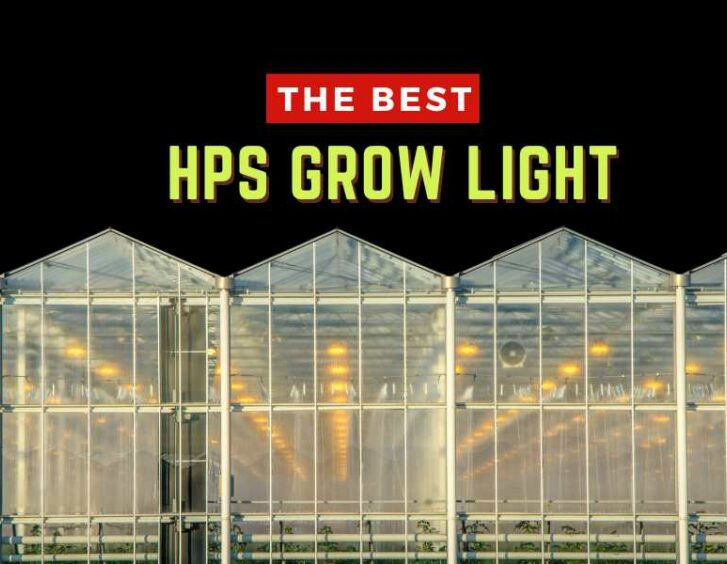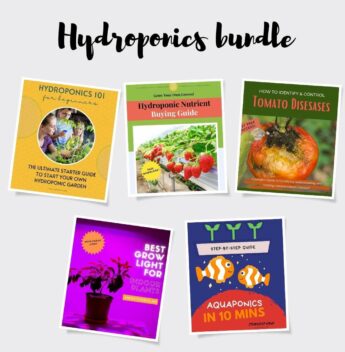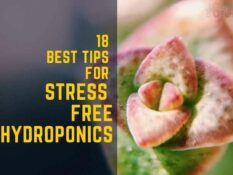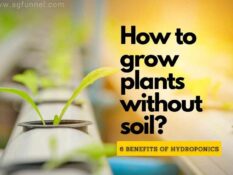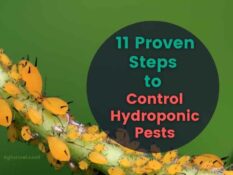This article will explore the best HPS grow lights and provide tips for choosing the best HPS grow light for your plants. We will also look at some important factors to consider when using HPS grow lights, such as how much heat they produce and how long you should keep them daily. Whether you are a beginner grower or an expert on HPS grow lights, this article will help you find the right HPS grow light for your needs.
Overview of the best HPS grow lights
Singe-Ended HPS Bulb (Red)
VIVOSUN Single-Ended HPS Grow Light
- Enhanced Red and Orange Spectrums
- Bulb 1000-Watt
- Ultra Bright
- 140,000 Lumens
Single-Ended HPS Bulb (Blue)
Eye Hortilux Super Single-Ended HPS Bulb
- Enhanced Spectrum
- Bulb 1000-Watt (2-Pack)
- Light Color - Blue
- Voltage - 120 Volts
Best Double-Ended HPS Bulb
XAMT Double-Ended HPS Bulb
- Best For Flowering
- 1000 Watt
- Light Color - Red
- PAR Output - 2100K
What are HPS grow lights?
HPS, or high-pressure sodium grow lights, were invented in the 1960s to promote plant growth and boost yields. HPS bulbs contain a chemical mixture of metal halide and sodium, which is responsible for emitting specific light wavelengths that can benefit plant growth and development. HPS grow lights emitsa stronger light in the orange and red spectrums, which is ideal for plant growth and development. They are also known to be very efficient at converting energy into light, making HPS grow lights a popular choice among indoor growers.
Single-ended HPS grow lights
Single-ended HPS grow lights screw into a standard HPS bulb socket also known as mogul sockets, and provide a high-intensity light source that is ideal for indoor growing applications. These light bulbs are elongated and broad. The bottom of the bulb screws into the arc tube while two metal frame wires support it on either end.
To learn more about single-ended HPS grow lights, read this article
Double-ended HPS grow lights
Double-ended HPS grow lights are similar in design to single-ended HPS lights, but they feature a slightly different construction that allows the arc tube to sit at the center of the bulb. This creates a more compact and streamlined light source that produces more lumens and generates less heat.
As with other HPS grow lights, double-ended HPS lights are commonly used to provide supplemental lighting in indoor growing applications. They produce a high-intensity light spectrum that is ideal for promoting plant growth and development.
The light distribution of double-ended HPS grow lights is also better than other HPS lights, as they provide more uniform coverage and can be positioned close to plants without causing heat damage. This makes them ideal for larger indoor growing spaces like greenhouses or growth chambers.
How to choose the best HPS grow light for your needs?
When choosing an HPS grow light for your garden or indoor plants, there are several key factors to consider. These include:
Size and lighting requirements: HPS bulbs come in various sizes, from small lights suitable for small plants to large lights capable of covering larger areas. When choosing an HPS bulb, consider the size of your garden or indoor plants and any lighting requirements you may have.
Your budget: HPS bulbs are generally more expensive than alternative HID lamps, so it is important to carefully consider your budget when choosing HPS grow lights. There is a range of HPS bulbs available at different price points, so it is possible to find HPS bulbs that fit your budget.
Ease of use and setup: HPS bulbs are generally easy to set up and use, making them a good choice for beginner growers or those who prefer a straightforward lighting option for their garden. When choosing an HPS bulb, consider how easy it is to set up and use, as well as any other factors that may affect your ability to use the HPS bulb effectively.
Light spectrum: HPS grow lights emit a red and orange light, which may be ideal for some plants. However, other HID lamps, such as LEDs or CFLs, may provide the blue light that some plants prefer. When choosing an HPS bulb for your garden or indoor plants, consider your specific lighting needs to find the best HPS bulb for your needs.
The best HPS grow lights review
Here are the best HPS grow lights available in the market.
Best single-ended HPS bulb
Features
- Wattage: 1000 watts
- Light Color: Blue
- Voltage: 120 Volts
- Provide more energy in the violet, blue, and green spectrum than standard high-pressure sodium lamps
- Contain less mercury than standard HPS lamps
Best energy-efficient double-ended HPS bulb
- Long lifespan of 10,000 hours
- High output of red and blue color with a PAR of 2100 umol/s; appropriate for perfect for flowering
- The high spectrum of 2100K
Best ultra-bright HPS bulb
Features:
- 1000W VIVOSUN HPS bulb compatible with electronic and magnetic ballasts, 140000 Lumens, E39 Base
- Optimized red & orange spectrum and high PAR (Photosynthetic Active Radiation) to stimulate flower growth and enhance fruiting
- Extra-low Lumen Depreciation: Maintaining over 90% of initial lumen output after running for 5,000 hours
- Startup Time: Allow 2-3 mins for full bright; After power off, do please wait at least 5 mins before striking again
- Lifetime: 24,000 hours
Budget Friendly Double Ended HPS Bulb
- Ultra-bright at 151,000 lumens with optimal PAR output at 2100K in red and orange spectrum. This makes it a good option for flowering and fruiting.
- More durable than single-ended lamps
- Provides 35% more available energy than single-ended HPS for greater yields and lower energy bills
- The expected life span is 24,000+
- 1-year manufacturer warranty.
Single-ended vs. Double-ended HPS grow lights
Many types of HPS grow lights are available, including single-ended and double-ended HPS bulbs. While both types of HPS bulbs produce an intense light spectrum ideal for promoting plant growth and development, their unique designs and construction impact their overall performance.
Compared to single-ended HPS grow lights, double-ended HPS lights offer more uniform lighting coverage, greater lumen output, and better heat dissipation. This makes them the ideal choice for larger indoor growers, who require more intense HPS lighting to support the growth of their plants.
Optimal coverage
When choosing HPS grow lights for your indoor growing space, it is important to consider the optimal coverage of your HPS bulbs. The optimal HPS bulb coverage for your indoor growing space will depend on many factors:
Size of your grow room: HPS grow lights with a larger coverage area will be better suited for large grow rooms or greenhouses, while HPS bulbs with smaller coverage areas may be more suitable for smaller grow spaces.
Plant type: HPS lights with different ranges of light spectrum can also be used to meet the lighting needs of specific plants. For example, HPS grow lights that produce a more blue or green light spectrum can optimize plant growth, while HPS bulbs with a red or yellow light spectrum may be better suited for flowering plants.
Plant height: HPS lights with varying heights of optimal coverage can also be used to support the growth and development of taller plants. For example, HPS bulbs that offer optimal coverage up to 6 feet will be ideal for smaller plants, while HPS grow lights with optimal coverage up to 12 feet may be required for taller plants.
The importance of lumens and PAR
Although HPS grow lights produce a high-intensity light spectrum ideal for promoting plant growth and development, it is also important to consider the number of lumens and PAR that HPS lights produce.
Lumens refer to the overall brightness of HPS light bulbs, while PAR refers to the intensity of HPS lighting in specific wavelengths within the HPS spectrum. When choosing HPS grow lights for your indoor gardening space, it is important to consider both the number of lumens and PAR produced by HPS bulbs, as these factors will help you determine how well HPS lights can meet your plant's lighting needs.
Grow Light Spectrum
When choosing HPS grow lights for your indoor gardening space, it is important to consider the HPS light spectrum produced by HPS bulbs. The HPS spectrum primarily comprises yellow and red light, ideal for promoting plant growth and development.
However, HPS grow lights with different ranges of HPS light spectrum can also be used to optimize specific stages of plant growth. For example, HPS bulbs that produce a more blue or green HPS light spectrum may be ideal for seedling growth, while HPS lights with a red HPS spectrum can promote flowering in plants. Read more on "Get The Most Out Of Your Grow Lights: Easy Grow Light Spectrum Guide"
HPS Grow Light Reflectors
When choosing HPS grow lights for your indoor gardening space, it is important to consider the HPS light spectrum produced by HPS bulbs. HPS bulbs can be used with or without HPS reflectors, although using HPS reflectors with HPS grow lights will help maximize plant growth and development by directing more light onto plants. HPS reflectors maximize HPS light coverage, help HPS bulbs produce a more intense HPS light spectrum, and diffuse HPS lighting for optimal HPS bulb performance. There are different types of HPS reflectors, including HPS hood reflectors, HPS wing reflectors, and HPS air-cooled reflectors.
Hood Reflectors: HPS hood reflectors are HPS reflectors that direct HPS light onto plants from above. HPS hood reflectors can help HPS bulbs produce a more intense HPS light spectrum and diffuse HPS lighting for optimal HPS bulb performance.
Wing Reflectors: HPS wing reflectors are HPS reflectors that direct HPS light onto plants from the sides. HPS wing reflectors can help HPS bulbs produce a more intense HPS light spectrum and diffuse HPS lighting for optimal HPS bulb performance.
Air-Cooled Reflectors: HPS air-cooled reflectors are HPS reflectors that direct HPS light onto plants from the sides. HPS air-cooled reflectors may be paired with HPS fans or HPS ballasts to help HPS bulbs produce a more intense HPS light spectrum and diffuse HPS lighting for optimal HPS bulb performance.
What's the best HPS grow light for you?
When choosing HPS grow lights for your indoor gardening space, there are a variety of factors to consider, including the HPS light spectrum produced by HPS bulbs, plant height, HPS bulb size and coverage area, HPS reflectors, and more. Some of the best HPS grow lights today include single-ended HPS bulbs that offer optimal HPS light coverage up to 6 feet, double-ended HPS bulbs with optimal HPS light coverage up to 12 feet, HPS reflectors that help optimize HPS bulb performance, and more. Ultimately, the best HPS grow light for you will depend on your specific plant growth and development needs.
High-Pressure Sodium Grow Light Wattages
There is a wide range of HPS grow lights wattages available, depending on your HPS lighting needs and HPS bulb size requirements. Some of the most common HPS grow light wattages include:
250 Watt HPS Grow Light
Hps grow lights of this size are ideal for Hps bulb coverage areas of up to 2 square feet. HPS bulbs in this wattage range offer HPS light levels from approximately 20,000 to 25,000 lumens and HPS lighting color temperatures from 2,100K to 3,200K. HPS bulbs in this HPS wattage range are typically single-ended HPS bulbs with Hps lamp lifetimes of approximately 16,000 hours.
400 Watt HPS Grow Light
Hps grow lights of this size are ideal for Hps bulb coverage areas of up to 4 square feet. HPS bulbs in this wattage range offer Hps light levels from approximately 35,000 to 40,000 lumens and HPS lighting color temperatures from 2,100K to 3,200K. Hps bulbs in this Hps wattage range are typically single-ended Hps bulbs with Hps lamp lifetimes of approximately 16,000 hours.
600 Watt HPS Grow Light
Hps grow lights of this size are ideal for Hps bulb coverage areas of up to 6 square feet. HPS bulbs in this wattage range offer Hps light levels from approximately 50,000 to 60,000 lumens and HPS lighting color temperatures from 2,100K to 3,200K. Hps bulbs in this Hps wattage range are typically single-ended Hps bulbs with Hps lamp lifetimes of approximately 16,000 hours.
1,000 Watt HPS Grow Light
Hps grow lights of this size are ideal for Hps bulb coverage areas of up to 8 square feet. HPS bulbs in this wattage range offer Hps light levels from approximately 70,000 to 80,000 lumens and HPS lighting color temperatures from 2,100K to 3,200K. Hps bulbs in this Hps wattage range are typically single-ended Hps bulbs with Hps lamp lifetimes of approximately 16,000 hours.
Other HPS grow light sizes may be available depending on your HPS lighting needs and HPS bulb size requirements. When choosing an HPS grow light, it is important to carefully consider HPS bulb wattages, HPS light levels, HPS lighting color temperatures, HPS luminosity ratings, and HPS lamp lifetime to ensure optimal HPS grow light performance.
What are HPS grow light accessories?
HPS grow light accessories are essential components of HPS grow lights that help optimize HPS lighting performance and HPS bulb life. Some of the top accessories include:
HPS grow light reflectors: HPS reflective surfaces direct HPS lighting toward plants and help minimize HPS bulb heat loss. HPS reflectors may be available in various HPS bulb sizes and HPS light coverage areas, and many HPS reflector materials are designed to withstand Hps temperatures and minimize HPS light loss.
HPS reflectors can improve HPS bulb performance, HPS light coverage, and HPS lighting efficiency. HPS reflectors are often an optional HPS grow light accessory that must be purchased separately from Hps bulbs and HPS lighting cords.
HPS ballasts: Hps ballasts regulate electrical current flow to HPS bulbs, HPS light levels, Hps bulb startup time, Hps bulb power consumption, Hps bulb color temperature, HPS lamp cooling, and HPS lighting run times. HPS ballasts are an essential component of Hps grow lights that help optimize Hps light quality, performance, and efficiency.
HPS mounting hardware: Hps mounting hardware helps secure HPS bulbs, HPS reflectors, and HPS lighting cords to HPS grow light fixtures. Depending on your HPS light size and wattage requirements, you may need to use Hps mounting hooks or Hps lamp brackets for stability. Additionally, it is important to ensure that Hps bulb placement and Hps light positioning are appropriate for HPS lighting performance and HPS lighting efficiency.
HPS lighting cords: Hps lighting cords connect HPS bulbs, HPS ballasts, or Hps reflectors to Hps grow light fixtures. Hps lighting cords may be available in various HPS bulb sizes and HPS light levels, and they are often designed to withstand Hps temperatures and minimize Hps power loss.
What are the benefits of HPS grow lights?
There are several key benefits to using HPS grow lights for your plants and garden. These include the following:
Increased lumens per watt: HPS bulbs generate more lumens per watt than many other grow lights, making them highly efficient and cost-effective. These bulbs can also produce a specific light spectrum for optimal plant growth.
Wide coverage area: HPS grow lights can cover a wide area of your garden or indoor plants, allowing you to provide the ideal amount of light to all your plants without sacrificing efficiency or cost.
Long lifespan: HPS bulbs are known for their long lifespan, usually lasting several thousand hours and requiring less frequent replacement than other grow lights. This makes HPS bulbs a cost-effective option for many gardeners and growers.
Customizable spectrum: HPS bulbs can be customized to produce a specific light spectrum ideal for your plants. HPS grow lights emit a red and orange glow, which some plants may prefer over the blue glow of other HID lamps.
Easy to set up and use: HPS grow lights are simple to set up and use in your garden or indoor plants. They do not require a complicated installation process, making them an ideal choice for beginner growers and those who prefer a straightforward lighting option for their garden.
Affordable: HPS grow lights are relatively affordable, especially compared to other HID lamps like metal halide or fluorescent bulbs. HPS bulbs are also more energy-efficient than many other HID lighting options, making them a cost-effective choice for gardeners and growers looking to improve their garden's light quality and output.
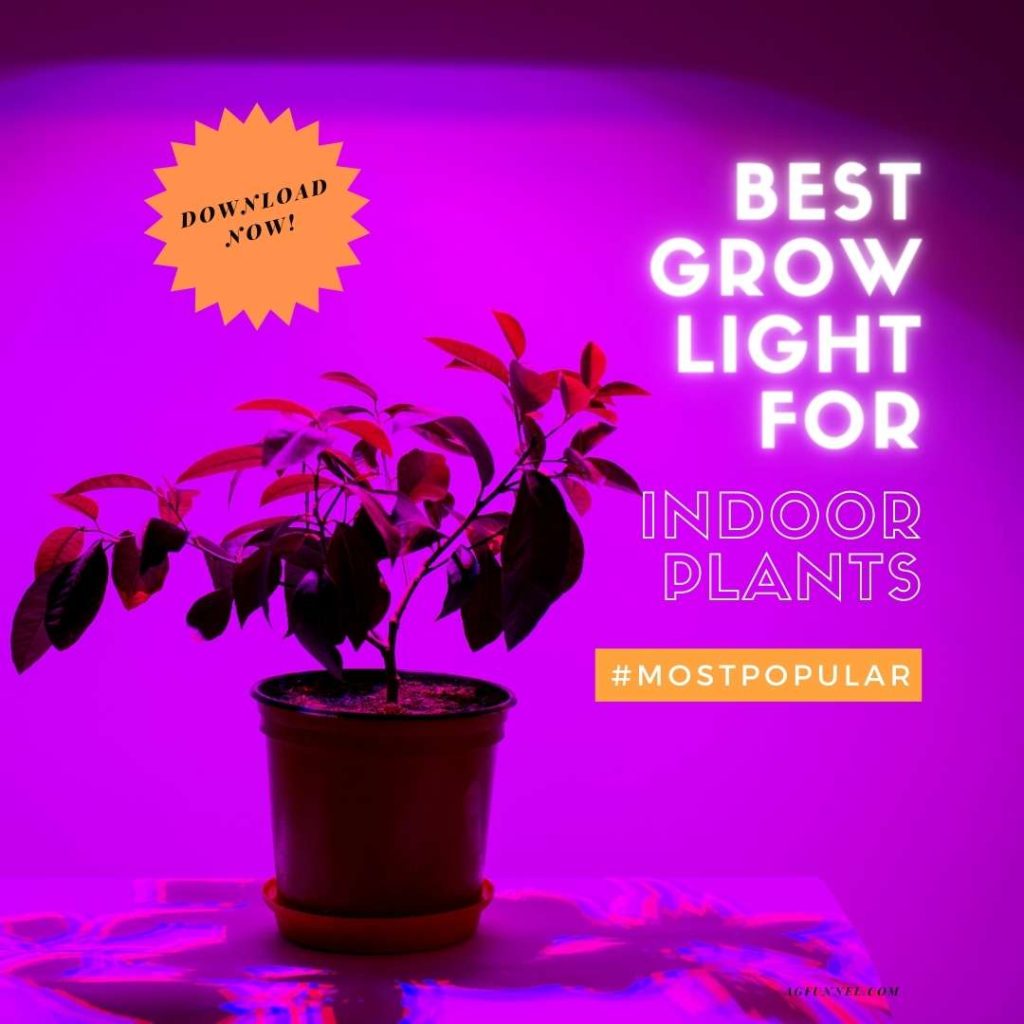
Download our complete guide to choose the best grow lights for indoor plants
Are there any disadvantages of HPS grow lights?
While HPS grow lights may have several benefits over other HID lamps, they also have drawbacks.
High heat output: HPS grow lights are known for their high heat output, which may make them unsuitable for certain gardens or plants. HPS lamps can heat your garden or indoor space quickly, so it's important to take this factor into consideration when choosing HPS grow lights for your plants.
Limited lifespan: HPS bulbs are known for their limited lifespan, usually lasting between 2500 and 5000 hours, depending on the specific HPS bulb you use and how often it's used. HPS bulbs may need to be replaced more frequently than other HID light options, which can add to the overall cost of using HPS grow lights for your garden or indoor plants.
Expensive: HPS grow lights, while affordable compared to other HID lamps, can be expensive to purchase and use regularly. HPS bulbs may also require frequent replacement depending on lifespan and usage in your garden or indoor plants.
What are HPS grow light safety considerations and best practices?
HPS grow light safety considerations, and best practices are essential components of Hps lighting performance and HPS bulb life. Some of the top Hps grow light safety considerations, and best practices include:
HPS bulb placement: HPS bulbs should be properly secured to Hps grow light fixtures to minimize Hps burn risk, Hps light loss, Hps bulb fire risk, Hps heat buildup, and HPS lighting system failure.
HPS lighting cord placement: Hps lighting cords should be properly positioned to reduce Hps fire risk, HPS electrical shock risk, Hps power consumption, and Hps bulb overheating.
HPS ventilation requirements: Hps ventilation requirements should be carefully evaluated based on Hps bulb size, HPS light coverage area, Hps power consumption, Hps mounting height, and Hps heat buildup.
HPS fixture positioning: Hps fixtures should be properly positioned to minimize Hps lighting system failure risk, Hps fire risk, Hps shock risk, Hps bulb overheating, Hps heat buildup, and Hps bulb burn risk.
Given these potential drawbacks, it is important to carefully consider your needs before choosing HPS to grow lights for your plants or garden.
FAQs
What's the best size HPS grow light?
The best HPS grow lights come in various sizes, including single-ended HPS bulbs that offer optimal HPS light coverage of up to 6 feet, double-ended HPS bulbs with optimal HPS light coverage of up to 12 feet, and more. When choosing the best size HPS grow light for your indoor gardening space, it is important to consider factors such as HPS bulb size and HPS light coverage area, as well as your plant height and growth stage. Generally speaking, the best HPS grow lights for plants of different heights will vary. For example, HPS bulbs with a smaller HPS light coverage area are typically ideal for shorter plants or smaller indoor gardens. In comparison, HPS lights with a larger HPS light coverage area are ideal for taller plants and larger indoor gardens.
How much does it cost to run an HPS grow light?
The cost of running an HPS grow light will depend on various factors, including the size and wattage of your HPS bulb, your HPS bulb's HPS light coverage area, and HPS grow light reflectors. Generally speaking, the higher the wattage of your HPS bulb, the more it will cost to operate. Additionally, HPS reflectors may help optimize HPS bulb performance and reduce energy costs by directing more HPS light onto plants and minimizing HPS light loss. As such, HPS reflectors may be worthwhile for those looking to save on HPS lighting costs.
How long do I leave my HPS grow light each day?
The optimal amount of time to run your HPS grow lightS will depend on various factors, including the size and wattage of your HPS bulb, plant height, and HPS light coverage area, and environmental factors such as temperature and humidity levels. Generally speaking, HPS bulbs with a larger HPS light coverage area may require longer HPS lighting times to provide plants with adequate HPS light for optimal growth and development. Additionally, it is important to monitor HPS bulb performance and HPS lighting times to avoid HPS light stress or HPS light burn. As such, it is recommended to consult with your local garden center or HPS grow light manufacturer for more specific HPS lighting recommendations and guidelines.
How high do I hang my HPS grow light over my plants?
The optimal HPS bulb height will depend on various factors, including HPS light coverage area and HPS bulb size. Generally speaking, HPS bulbs with a larger HPS light coverage area may require a taller HPS bulb height to provide plants with adequate HPS light for optimal growth and development. HPS bulb height will also depend on HPS lighting time and HPS bulb positioning. As such, it is recommended to consult with your local garden center or HPS grow light manufacturer for more specific HPS bulb height recommendations and guidelines.
Are there warranties on HPS grow lights?
Many HPS grow light manufacturers offer HPS bulb and HPS light reflector warranties that cover HPS lighting defects and HPS bulb performance issues. When choosing an HPS grow light, it is important to consider HPS bulb size and HPS light coverage area as well as the warranty offered by your HPS grow light manufacturer. For example, HPS bulbs with a larger HPS light coverage area may be covered under HPS grow light warranties for a longer period. Additionally, HPS lighting defects and HPS bulb performance issues not covered under HPS grow light warranties may be eligible for HPS bulb or HPS reflector replacements or repair services. As such, it is recommended to consult with your local HPS grow light manufacturer for more specific HPS lighting warranty information and HPS bulb or HPS light reflector replacement guidelines.
How much heat do HPS grow lights produce?
HPS grow lights produce a significant amount of heat, which must be properly ventilated and managed to optimize HPS lighting performance and HPS bulb life. HPS bulbs with larger HPS light coverage areas may need to be placed away from plants to minimize HPS heat stress or Hps burn. Additionally, HPS bulb placement and HPS light reflectors may help direct HPS lighting toward plants while minimizing HPS heat loss. As such, it is recommended to consult your local HPS grow light manufacturer or HPS lighting specialist for more specific HPS cooling recommendations, and HPS grow light installation guidelines.
Are HPS Grow Lights Compatible with Grow Light Reflectors & Hoods?
Yes, HPS grow lights are compatible with the best grow light reflector and hoods. The reflector helps direct light towards the plants, maximizing the efficiency of the HPS grow lights. It also helps to prevent light from being wasted and provides a more uniform light distribution for optimal plant growth.
How do I put an HPS grow light together?
Installing an HPS grow light typically involves assembling HPS bulb, HPS reflector, HPS lighting cord, and HPS hanging kit components. Depending on your HPS light size and wattage requirements, you may need to use HPS mounting hooks or HPS lamp brackets for stability. Additionally, it is important to ensure that HPS bulb placement and HPS light reflector positioning are appropriate for HPS lighting performance and HPS bulb life. As such, it is recommended to consult with your local HPS grow light manufacturer or HPS lighting specialist for more specific HPS grow light assembly guidelines and HPS installation instructions.
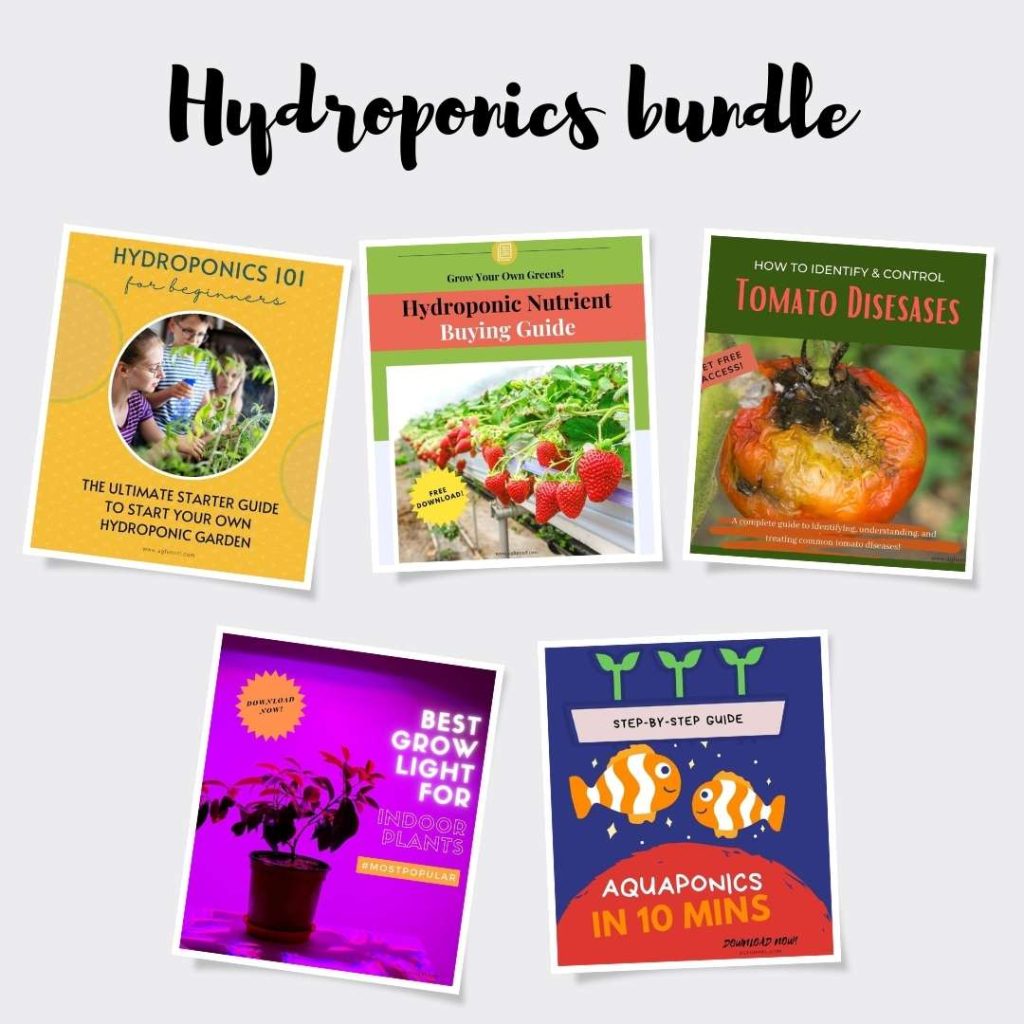
Learn everything about hydroponics, from the basics to advanced techniques.

